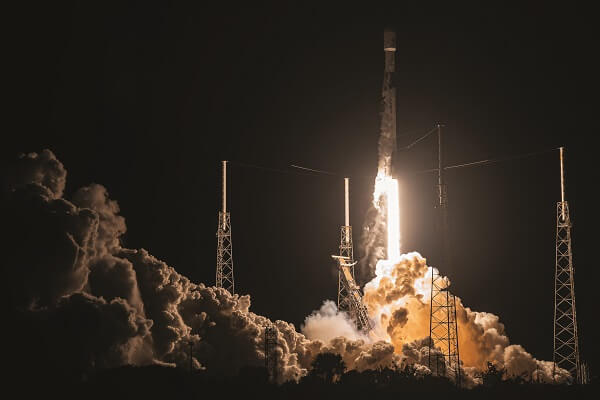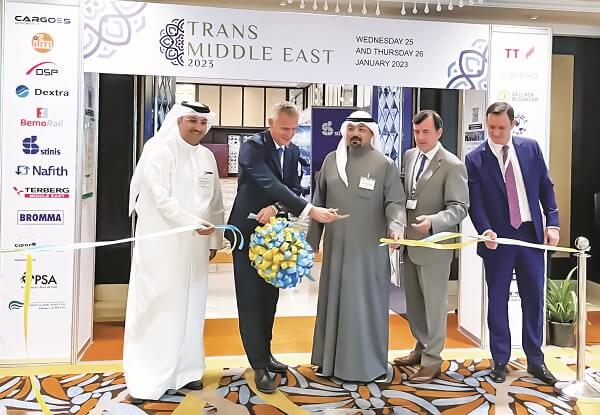In Issue 84, Inmarsat's Dennis Winterswijk shares insights from Inmarsat on the accelerating bandwidth requirements of modern shipping
The maritime industry is constantly developing and adapting to market needs at every stage. Today, advances in ship-to-shore connectivity are making a greater contribution than any other development to enhancing ship efficiency, safety and environmental profile, and improving the conditions of those who work and live at sea. Dennis Winterswijk, Regional Director, EMEA shares insights from Inmarsat on the accelerating bandwidth requirements of modern shipping and introduces the upcoming launch of ORCHESTRA - the network set to redefine connectivity in the maritime industry.
 |
| Dennis Winterswijk |
With all the challenges that the maritime industry is facing, how are Inmarsat’s services evolving to keep up with market demands?
Decarbonisation is the greatest challenge currently facing the maritime industry – and digitalisation will play a pivotal role in overcoming it. According to the Inmarsat-Thetius report The Optimal Route, digital optimisation strategies alone can yield a reduction in marine greenhouse gas emissions of up to 38% by 2050 – 76% of the decarbonisation effort required by IMO targets.
Providing the backbone for digital optimisation are connectivity and data. Inmarsat’s I-6 satellites – the second of which, I-6 F2 was launched in February – are the most technologically advanced communications satellites ever launched. They are part of a visionary and fully funded technology roadmap that will see a further five satellites launched by 2025, providing Inmarsat customers with greater capacity, coverage and speed than ever before.
Also, Inmarsat’s marketing-leading connectivity services allow ship owners to fully harness the transformational power of data. Through Fleet Data, available to Fleet Xpress and Fleet Broadband users, owners can overcome the challenge of gathering and accessing the data generated across their fleet. Collecting information from onboard sensors, Fleet Data then processes it and uploads it to a secure, cloud-based database, where it can be accessed via a built-in dashboard, modified and customised for further analysis.
The information collected through Fleet Data can also be shared with shore-based teams and third-party application providers, who can provide actionable insights to improve operational efficiency and thereby support decarbonisation efforts.
| Read More: Inmarsat confirms successful launch of world's most advanced satellite |
What other plans does Inmarsat have in terms of services for 2023 and beyond?
The next stage of Inmarsat’s technology roadmap is ORCHESTRA, a unique multi-dimensional mesh network that will redefine connectivity at scale with the highest capacity for mobility worldwide and at hotspots around the globe.
Designed to meet the accelerating bandwidth requirements of modern shipping, ORCHESTRA will combine our geosynchronous networks, ELERA and Global Xpress, with terrestrial 5G and targeted low-Earth orbit satellites. These components will be complemented by a dynamic mesh network that allows individual terminals to act as nodes, rerouting traffic to and from other terminals to bring a powerful new dimension to networking.
The result will be a single, advanced solution for global mobility that will offer the fastest average speeds and the lowest average latency of any network – either planned or in existence – with seamless connectivity worldwide.

How does Inmarsat fulfil its role as a service provider for the maritime industry dedicated to deliver life-saving satellite communication services?
Maritime safety is part of Inmarsat’s DNA. The company was founded by the IMO in 1979 to establish a satellite communications network for protecting lives at sea. With the launch of Inmarsat C in 1991, it became the first satellite operator to meet the requirements of the IMO’s Global Maritime Distress and Safety System (GMDSS).
As we move further into the digital era of shipping, technology can be used for enhanced safety, whilst also providing new ways of tackling emerging challenges. In September 2022, Inmarsat launched Fleet Safety to modernise safety communications and improve safety standards in global shipping. The launch of Fleet Safety marks a turning point in the way satellite communications ensure the preservation of life at sea.
Delivered via a combination of a maritime safety terminal and FleetBroadband or Fleet One data services, Fleet Safety provides high speeds, global coverage and 99.9% global network availability. Meanwhile, the solution’s intuitive user interface makes it easy for seafarers to navigate the system, access critical functionality and communicate with maritime rescue coordination centres (MRCCs) in an emergency. A network of over 50 global MRCCs is available to contact, by voice or instant messaging, at the touch of a button.
Fleet Safety also features an innovative Maritime Safety Information (MSI) interface and a Distress Chat function. The MSI feature allows users to clarify and control the stream of MSI broadcasts, which include meteorological, navigational and search-and-rescue warnings, based on a standardised Inmarsat interface, while the Distress Chat capability enables the creation of chat rooms between ships in distress, assisting vessels and MRCCs.
| Read More: Sealift Incorporated counts on Inmarsat Fleet Hotspot to meet crew connectivity requirements |
Lately, there’s been an agreement with Zamil Offshore to deliver fleet connectivity for Saudi Aramco chartered vessels. How does this serve Inmarsat’s spread throughout the region?
Inmarsat is proud to have been selected by Zamil Offshore to roll out an Internet of Things solution to more than 60 Saudi Aramco-chartered vessels in the Gulf Area. Our Fleet Connect solution will provide the dedicated bandwidth to support the vessels’ CCTV requirements and provide value-added services, while Fleet Data will power enhanced analytics for efficiency and sustainability.
The agreement with Zamil is part of Inmarsat’s ongoing expansion in Saudi Arabia, the largest country in an increasingly important maritime market, the Middle East. In 2020, Inmarsat launched its connectivity services in Saudi Arabia to meet growing demand in and around the kingdom for reliable, mobile satellite communications and digital services.
When it comes to the workboat sector generally, how is Inmarsat supporting smarter, greener operations?
As of June 2022, usage of the Inmarsat network in the offshore vessel sector was 46.79% higher than in 2021, with this increase in data consumption partly attributable to the offshore industry’s ambitions to achieve greener and more efficient operations.
An example of an offshore company using Inmarsat’s connectivity services to accelerate its digitalisation and decarbonisation efforts is Vallianz Holdings. Through a Fleet Xpress package including Fleet Data and Fleet Connect, the offshore marine and engineering solutions provider is targeting smarter and more sustainable operations across its fleet of offshore support vessels.

Finally, crew welfare is high on the agenda and it is clear that the industry needs to keep investing in improving life at sea. How is Inmarsat making a difference?
In 2022, Inmarsat’s dedicated crew connectivity solution, Fleet Hotspot, won the Mission to Seafarers Innovation Award for its “outstanding contribution to seafarer welfare”.
Powered by Fleet Xpress, Fleet Hotspot allows crew to stay in contact with friends and family and stream online entertainment in their free time. Through the user-friendly Fleet Hotspot portal, seafarers can monitor their usage or top up their balances using their own devices. Recent enhancements to the portal have made Fleet Hotspot easier to use than ever, with crew now able to access their accounts from home and purchase data before boarding the vessel.
For shipowners, Fleet Hotspot ensures compliance with crew connectivity requirements, which were recently introduced into the Maritime Labour Convention 2006. It also brings a competitive advantage in crew recruitment and retention, with seafarers increasingly favouring employers that offer the highest-quality connectivity services.
In 2019, Anglo-Eastern Ship Management became one of the first companies to sign up for Fleet Hotspot, providing its seafarers with reliable, high-speed connectivity and the freedom to use their own devices on board. Anglo-Eastern doubled its crew’s free internet allowance in response to the Covid-19 pandemic. It also increases crew internet allowance every year on the ‘Day of the Seafarer’ and festive occasions.
Robban Assafina Magazine, Issue 84, March/ April 2023, MAritime Host, pg. 93
| Read Here | |
 |
|







































